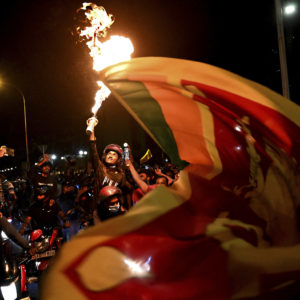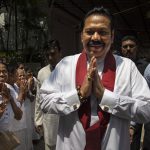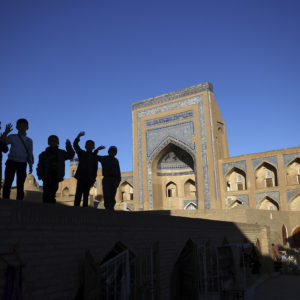Sri Lanka is on the brink
Civil unrest in the South Asian island nation is poised to worsen as President Gotabaya Rajapaksa refuses to step down and furious protesters show no sign of relenting.
Author:
23 May 2022
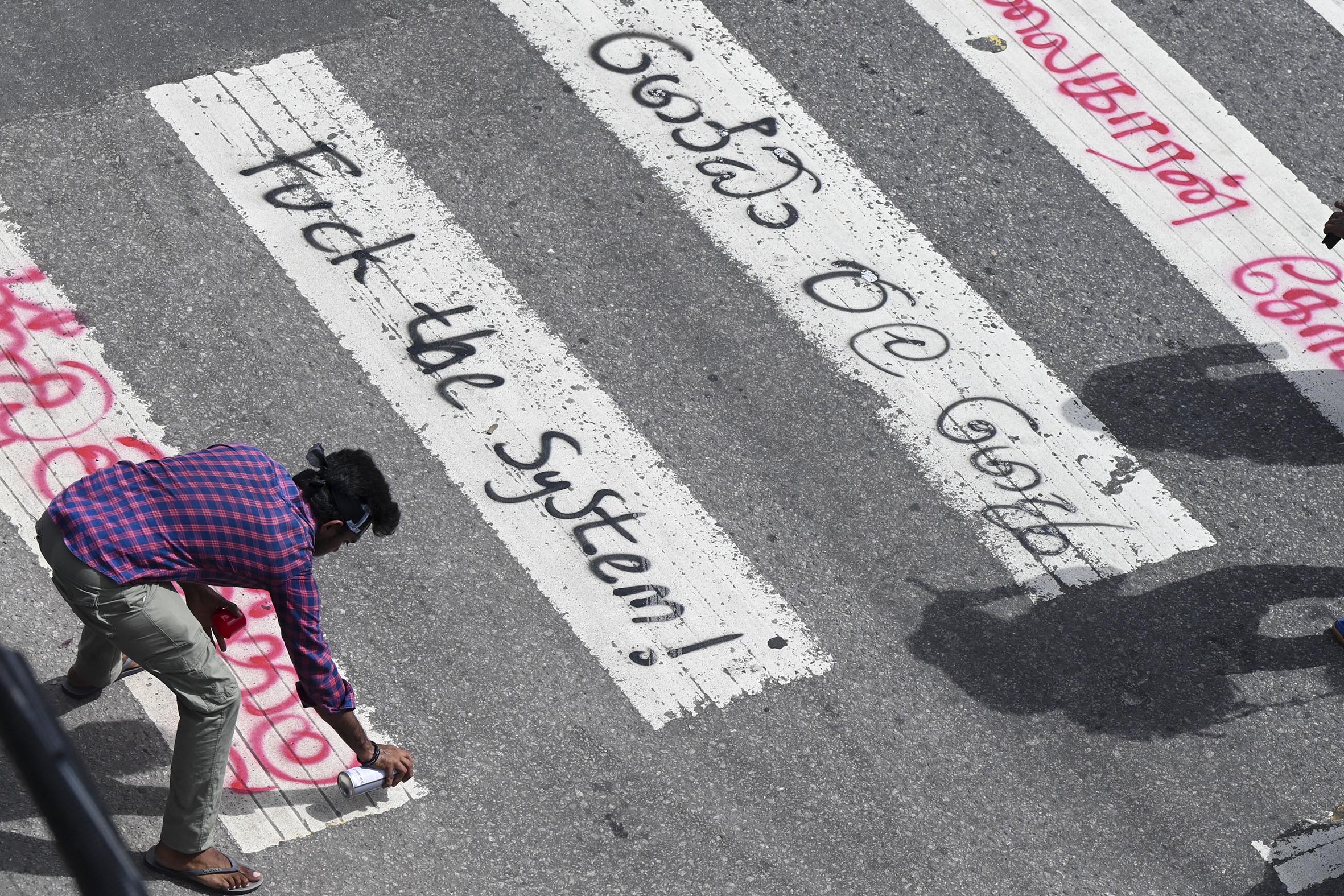
Sri Lanka’s political turmoil is turning deadly, with embattled President Gotabaya Rajapaksa defying calls to quit. This despite violent clashes in recent days that have killed several people, as months of civil unrest triggered by the island’s crippling financial downturn escalate. For the first time in its history, the country also defaulted on its debt after failing to pay two international sovereign bonds.
The president’s latest declaration of a state of emergency on 6 May has had no impact on the ground. Demonstrators continue to take to the streets and the economic crisis shows no signs of abating, with fuel and food shortages worsening. As the public seethes over the economic crisis, attacks by pro-government supporters and the president’s refusal to back down, the risk of worse and more deadly unrest looms.
The public discontent against the Sri Lankan government – and especially against the president – took a violent turn on 9 May when pro and anti-government protesters clashed in capital city Colombo. Witness accounts and videos on social media show government supporters attacking protesters with clubs and other weapons. The violence left at least nine people dead and nearly 300 others injured. Vehicles were set on fire and public property destroyed. The riot police and military fired tear gas and water cannons to stop the clashes.
Related article:
This was the first time that the anti-government protests turned deadly, sparked by the aggression of cadres of the ruling Sri Lanka Podujana Peramuna (SLPP) party. A ruling party lawmaker was killed after he reportedly opened fire on demonstrators that had encircled his car. When the angry mob toppled the car, he reportedly fled and took refuge in a building where he shot himself. A report, however, suggests that he may have been lynched.
Protesters also tried to storm and torch the Rajapaksa family’s ancestral home, which is nestled amid the homes of hundreds of other pro-Rajapaksa members of Parliament (MPs). The incident occurred only hours after Prime Minister Mahinda Rajapaksa resigned, a move seemingly aimed at pacifying the protesters. The Sri Lankan military conducted a pre-dawn evacuation, firing warning shots into the air to disperse the crowds.
Mahinda has since taken refuge at the Trincomalee naval base on Sri Lanka’s east coast and the military has been called in to patrol the streets. A Sri Lankan court has now barred the former prime minister and 16 others from travelling overseas in view of investigations into the violence. The Sri Lanka Police’s criminal investigation department had requested the Colombo Fort magistrate’s court to impose the ban.
A ‘broken’ economy
On 10 May, Sri Lanka’s Ministry of Defence ordered military personnel to open fire on anyone looting public property or causing harm to others. The shoot-on-sight order came after Gotabaya urged people to stop “violence and acts of revenge” against fellow citizens and vowed to address the crisis facing the nation. In a televised address, the president pledged to restore order and announced that he was ready to abolish the system of executive presidency that gives him wide-ranging executive powers.
United Nations High Commissioner for Human Rights Michelle Bachelet said she was “deeply troubled” by the violence committed by supporters of the prime minister and the subsequent “mob violence” against ruling party members. She urged the authorities to prevent further violence and independently investigate all attacks that have occurred. “It is crucial to ensure that those found responsible, including those inciting or organising violence, are held to account,” she said.
Gotabaya appointed a new prime minister on 12 May to pacify demonstrators amid the country’s worst recession in its independent history. Ranil Wickremesinghe, a veteran opposition MP and five-time prime minister, was sworn in to lead a proposed cross-party coalition. With the country’s largest opposition party refusing to join a government headed by a member of the Rajapaksa clan, the 73-year-old Wickremesinghe becomes the world’s first premier to run a government with just one seat in the Parliament. He heads the United National Party and is the only lawmaker from his outfit.
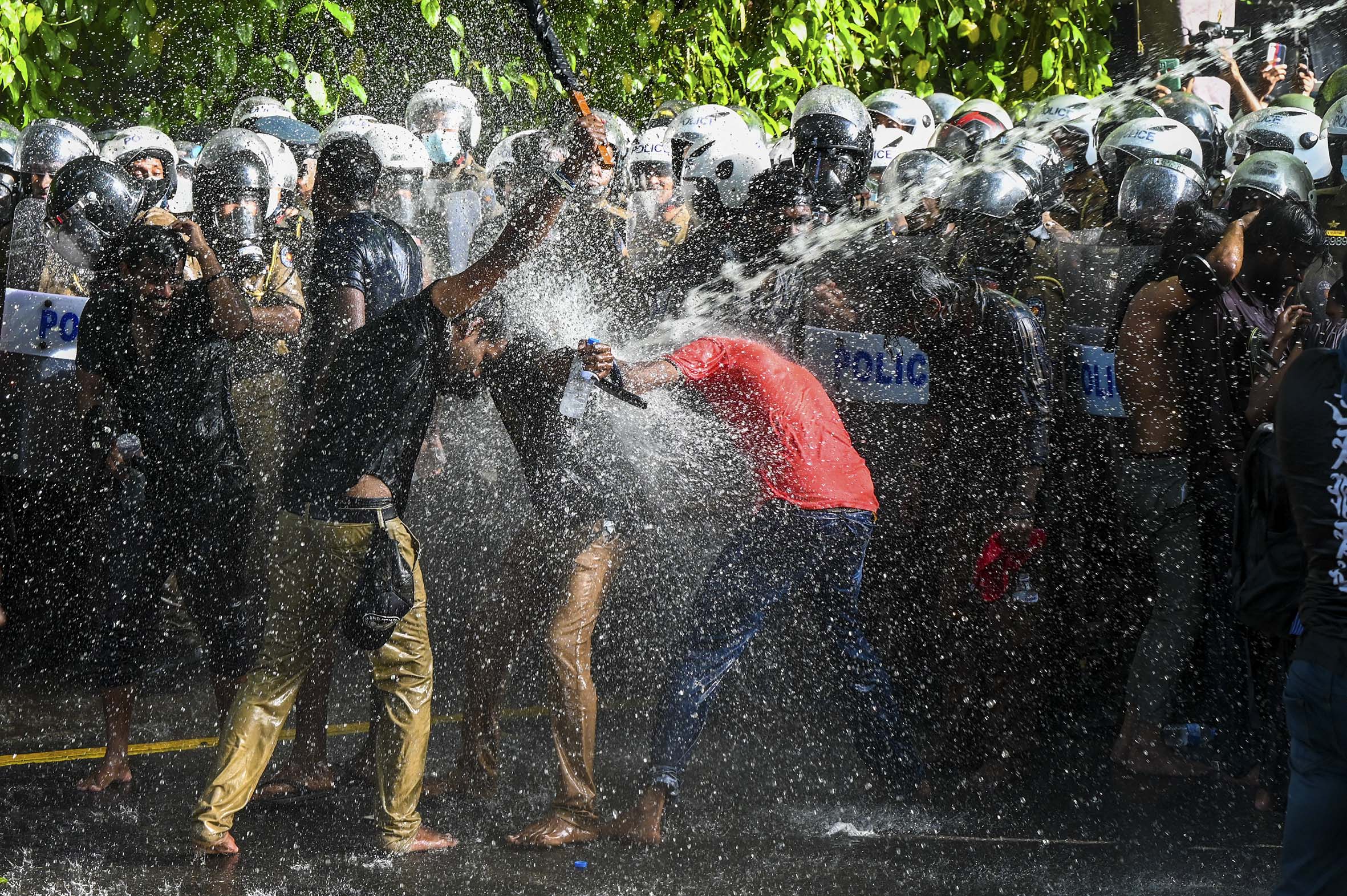
But Wickremesinghe’s appointment has failed to appease protesters. The country’s main opposition party has also rejected his appointment, and insisted the president resign as well. But opposition to the Sri Lankan leader failed after ruling party members blocked the motion in Parliament.
Wickremesinghe has acknowledged that the economy is “broken” and that the current financial situation is “going to get worse before it gets better”. While agreeing with the sentiments of demonstrators demanding Gotabaya’s resignation, the new prime minister said it was unlikely to happen.
Opposition parties have called Wickremesinghe’s appointment “a delaying tactic” that will not help resolve the economic crisis. “The main slogan is ‘Gota Go Home’ [in reference to Gotabaya]. But the president and his associates are doing their best to keep Gotabaya in power. They are also coming up with various temporary solutions,” said Tilvin Silva, the general secretary of Sri Lanka’s Marxist Leninist, Janatha Vimukthi Peramuna (JVP) party.
The Rajapaksa regime had hoped that the move would defuse the crisis, but the decision did not placate anti-government protesters, who repeated calls for the president’s resignation. The events marked the country’s deadliest day of political upheaval since the current wave of protests against the government began four weeks earlier.
Economic turmoil
The people of Sri Lanka have been protesting the Rajapaksa regime and its misrule since 31 March. Protests were spurred by economic mismanagement, which resulted in skyrocketing food and fuel costs, fuel shortages and prolonged power outages, with elderly people dying while queuing for fuel. They quickly grew into an all-out uprising demanding the ousting of the current government led by Gotabaya. The regime’s open nepotism contributed to the people’s anger.
Months of shortages and electricity outages have stoked public dissatisfaction and largely peaceful protests continue to be held around the country. However, the authorities – especially in Colombo – have retaliated with harsh measures to crack down on dissenters, using tear gas and water cannons. Despite the provocation, protesters have remained resolute, pledging to continue protesting until the president resigns as well.
Related article:
Sri Lanka is confronting a balance of payments problem and acute foreign exchange shortages, which have been worsened by Covid-19 lockdowns, pre-pandemic tax cuts and a lack of access to international capital markets. Foreign exchange reserves are dangerously depleted, making imports of vital medication, food, cooking gas and energy difficult. This has a significant impact on many areas, including education, health and livelihoods.
The country defaulted on its $51 billion (about R810 billion) foreign debt last month and finance minister Ali Sabry has warned that it now has only $50 million in usable foreign reserves. The government has requested a bailout from the International Monetary Fund but with the start of the political turmoil, no one is certain it will be granted – a situation that would be near disastrous for the country’s 22 million inhabitants.
A notorious ruling clan
The Rajapaksas are known for using strong-arm tactics and the brothers have ruled with an iron fist. There has been widespread criticism of the government for not tolerating any kind of dissent.
Human rights groups have often highlighted the Sri Lanka government’s dismal track record when it comes to investigating and prosecuting egregious abuses of human rights in consecutive regimes. During the Tamil civil war that concluded in May 2009, Gotabaya, Mahinda and other leaders in the present administration were accused of being complicit in the deaths and enforced disappearances of journalists, lawyers and political activists.
The Rajapaksa brothers came to power on the strength of their image as strong leaders who had “tamed” the rebellious Tamils. The continued humiliation of the Tamils was then compounded by Islamophobic politics and violence against the Muslim and Christian minority populations.
Related article:
The ongoing crisis may have weakened the Rajapaksa family, which has dominated politics for nearly two decades. But many say that the demands for the president’s ousting may not be straightforward and that the power of the ruling party will not diminish any time soon.
Michael Kugelman, the deputy director of the Asia programme at the Wilson Center, says that even if the current crisis brings down the government, the Rajapaksa clan will continue to wield enormous power, even if it is significantly diminished. “The Rajapaksas are too powerful, and Sri Lanka’s opposition is divided. Even if the country manages to rescue its economy, the political environment will remain hyperpolarised.”
Sri Lanka’s constitution makes it difficult and time-consuming to remove a president. There has been only one failed attempt to remove a president in the past five decades of Sri Lanka being ruled under an executive presidential system. The president has broad powers as commander-in-chief of the armed forces and head of the government, as well as the authority to nominate the chief judge, police chief and other officials, in line with the country’s constitution.

